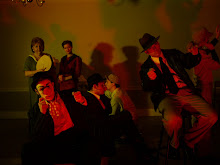- Luigi Pirandello: “After Shakespeare I unhesitatingly place Ibsen first.”
- Eugene O’Neill found Ibsen: “Much nearer to me than Shakespeare.”
- Anton Chekov was first exposed to Ibsen through poor translations. Once he came closer to the source material he proclaimed: “You know Ibsen is my favorite writer.”
“Ibsen’s contribution to the theatre was threefold, and in each respect the drama owes more to him than to any other dramatist since Shakespeare. Firstly, he broke down the social barriers which had previously bounded it. He was the first man to show that high tragedy could be written about ordinary people and in ordinary everyday prose, and the importance of that seemingly simple achievement can hardly be exaggerated… Before Ibsen, tragedy had (always excluding Buchner) concerned itself with kings and queens, princes and princesses or, at the lowest, Montagues and Capulets. .. He was not the first dramatist to attempt this, [but the first] that got off the ground.
His second contribution – He threw out the old artificialities of plot which … Shakespeare and Schiller were also guilty: mistaken identities, overheard conversations, intercepted letter sand the like. It was a slow and painful process to rid himself of these; something of the old machinery is still there as late as A Dolls House, but his last ten plays are free of it.
Equally important he developed the art of prose dialogue, to a degree of refinement which has never been surpassed; not merely the different ways people talk, and the different language they use under differing circumstances, but the double-density dialogue which is his peculiar legacy, the sub-text, the meaning behind the meaning.”
Red Tape Theatre presents Robert Oakes' original adaptation of Henrik Ibsen's An Enemy of the People from May 4-30, 2009.
Tickets are available on our website.
Paul G. Miller
Season Dramaturge


No comments:
Post a Comment